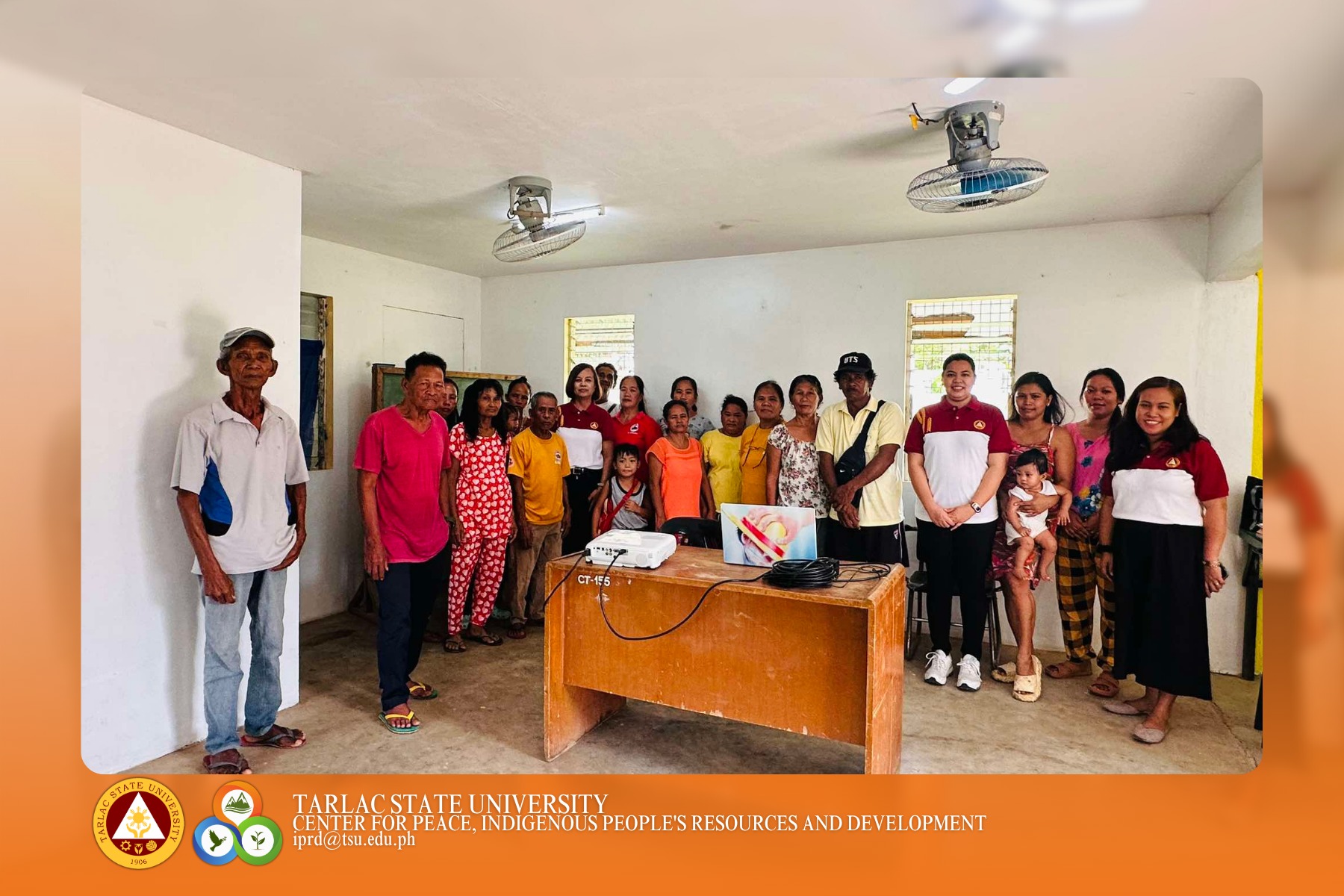On June 4, 2025, the Center for Peace, Indigenous People's Resources and Development, in collaboration with an extensionist from the College of Arts and Social Sciences, held a hands-on workshop focused on resolution writing and preparing minutes of meetings for Indigenous Peoples (IP) leaders of Maamot, San Jose, Tarlac.
The CPIPRD also extends its sincere appreciation to Chieftain, Ms. Pineda Grospe, and Indigenous Peoples Mandatory Representative (IPMR), Ms. Marilou Modelo, for their invaluable support and active participation, which greatly contributed to the success of the workshop. Their leadership inspired the 46 participants, comprising respected elders and dedicated community leaders, whose presence and engagement demonstrated a shared commitment to strengthening governance practices within their respective communities.
The workshop began with a session on resolution writing, led by Atty. Ruby Rose Vinluan. With clarity and simplicity, Atty. Vinluan broke down the basics of writing resolutions in a way that was easy for the participants to grasp. She reminded everyone that good governance should not only be practiced but must be clearly documented, strong leadership, she emphasized, must be visible on paper.
To make things more relatable, she shared samples of resolutions written in a language that the IP leaders could easily understand and adapt for their own communities. Before wrapping up, she encouraged the participants to write their own resolutions, guiding them patiently as they put pen to paper. She stressed that mastering this skill is vital for IP leaders to craft and implement rules that truly reflect their communities’ needs and aspirations.
The second part of the workshop was led by Mr. Howard Aries Ronquillo, who facilitated a session on writing minutes of meetings. Drawing from his own experience, Mr. Ronquillo explained the essential parts of meeting minutes, using examples from the Center’s own records. He provided a simple template that participants could take home and use for their future meetings.
To make the session interactive, Mr. Ronquillo simulated a short meeting, giving each participant a chance to practice noting down key points and important details. With his guidance, they turned their raw notes into a proper, well-organized set of minutes, a practical skill they can now confidently apply in their own communities.
Through this workshop, the CPIPRD hopes to help IP leaders strengthen their governance by equipping them with tools to document their leadership, decisions, and collective actions, one resolution and one meeting at a time.







